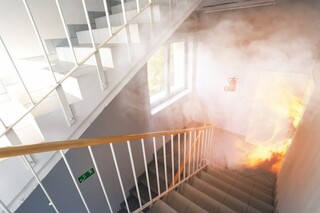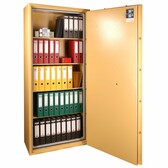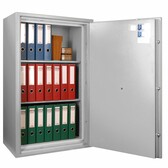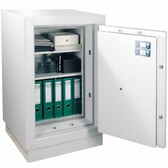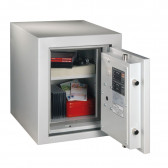A fire can have tragic consequences. Fire causes irreparable damage and huge property losses. In practice, it often turns out that the disaster could have been prevented, e.g. by replacing faulty electrical installation or other preventive measures. We advise on which of them are particularly worth paying attention to.
How to protect yourself against fire?
In order to prevent a fire in your home, you have to take care of proper safety measures as well as observe safety principles yourself. The law only regulates the fire protection requirements for detached houses to a small extent. Some of the general rules mainly relate to the technical building standards. However, the property owner is not obliged to designate an escape route in the event of a fire or to have a fire extinguisher. However, it is advisable to use common sense and take care of the relevant safety measures. An extinguisher should be in an easily accessible place, near the room where the source of the fire is located. This applies especially to kitchens, boiler rooms and interiors with fireplaces. It is also important to think about the escape route mentioned above in case a fire does start in the house. For example, which way can you get out of the building if the fire breaks out on the ground floor and you are upstairs? You can invest in a special escape ladder, but smoke detectors are a better option.
In some countries, such as the United States, all dwellings must be equipped with smoke detectors with an alarm. These devices detect smoke very quickly and give an audible warning of a fire. This enables the occupants to react quickly to extinguish the fire or leave the property safely.
Failure is the first step to a fire
It is also very important to ensure that all installations in the house are in good working order. The electrics and heating system are the most sensitive areas of the property, and the kitchen requires special attention. It is in the heart of the home that there is a fire source in the form of the cooker, as well as household appliances that can be potentially damaged and consequently lead to a fire. It is therefore necessary to carry out regular technical inspections of appliances and installations, as well as the necessary maintenance work, and to rectify breakdowns immediately.
Property protection and fire
You should also consider protecting your valuables in the event of a fire. Valuables, as well as priceless keepsakes and documents that we want to protect from destruction, should be stored in a fire-resistant safe. These types of safes are resistant to high temperatures and water, to which they are exposed when extinguishing a fire. Depending on your needs, you can choose both the size and equipment of the safe, as well as its fire resistance class. The containers retain their properties for 30, 60, 90 or 120 minutes respectively at the highest temperatures. This is usually the time needed to extinguish a fire. It is worth knowing that fireproof safes are subjected to extreme tests at temperatures as high as 1090 degrees Celsius. If you choose a safe from a reputable manufacturer, you can be sure that its contents will survive even a fire.
This may interest you: Is a home safe for everyone?
Fireproof and waterproof safe – is it possible?
Fireproof cassette or fireproof safe – which solution is better to invest in?
